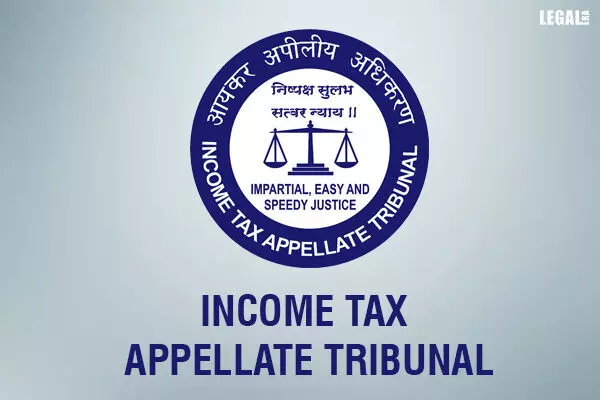- Home
- News
- Articles+
- Aerospace
- Artificial Intelligence
- Agriculture
- Alternate Dispute Resolution
- Arbitration & Mediation
- Banking and Finance
- Bankruptcy
- Book Review
- Bribery & Corruption
- Commercial Litigation
- Competition Law
- Conference Reports
- Consumer Products
- Contract
- Corporate Governance
- Corporate Law
- Covid-19
- Cryptocurrency
- Cybersecurity
- Data Protection
- Defence
- Digital Economy
- E-commerce
- Employment Law
- Energy and Natural Resources
- Entertainment and Sports Law
- Environmental Law
- Environmental, Social, and Governance
- Foreign Direct Investment
- Food and Beverage
- Gaming
- Health Care
- IBC Diaries
- In Focus
- Inclusion & Diversity
- Insurance Law
- Intellectual Property
- International Law
- IP & Tech Era
- Know the Law
- Labour Laws
- Law & Policy and Regulation
- Litigation
- Litigation Funding
- Manufacturing
- Mergers & Acquisitions
- NFTs
- Privacy
- Private Equity
- Project Finance
- Real Estate
- Risk and Compliance
- Student Corner
- Take On Board
- Tax
- Technology Media and Telecom
- Tributes
- Viewpoint
- Zoom In
- Law Firms
- In-House
- Rankings
- E-Magazine
- Legal Era TV
- Events
- Middle East
- Africa
- News
- Articles
- Aerospace
- Artificial Intelligence
- Agriculture
- Alternate Dispute Resolution
- Arbitration & Mediation
- Banking and Finance
- Bankruptcy
- Book Review
- Bribery & Corruption
- Commercial Litigation
- Competition Law
- Conference Reports
- Consumer Products
- Contract
- Corporate Governance
- Corporate Law
- Covid-19
- Cryptocurrency
- Cybersecurity
- Data Protection
- Defence
- Digital Economy
- E-commerce
- Employment Law
- Energy and Natural Resources
- Entertainment and Sports Law
- Environmental Law
- Environmental, Social, and Governance
- Foreign Direct Investment
- Food and Beverage
- Gaming
- Health Care
- IBC Diaries
- In Focus
- Inclusion & Diversity
- Insurance Law
- Intellectual Property
- International Law
- IP & Tech Era
- Know the Law
- Labour Laws
- Law & Policy and Regulation
- Litigation
- Litigation Funding
- Manufacturing
- Mergers & Acquisitions
- NFTs
- Privacy
- Private Equity
- Project Finance
- Real Estate
- Risk and Compliance
- Student Corner
- Take On Board
- Tax
- Technology Media and Telecom
- Tributes
- Viewpoint
- Zoom In
- Law Firms
- In-House
- Rankings
- E-Magazine
- Legal Era TV
- Events
- Middle East
- Africa
ITAT: There Must Be Reasonable Basis To Apply Certain Net Profit Rates In Unexplained Sales

ITAT: There Must Be Reasonable Basis To Apply Certain Net Profit Rates In Unexplained Sales
Dismisses the revenue department’s appeal for not providing any justification for it
The Rajkot, Gujarat bench of the Income Tax Appellate Tribunal (ITAT) has held that there must be a reasonable basis for applying a particular net profit rate in a case. It rejected the estimation of profit at 12.5 percent deduced by the Assessing Officer (AO) on account of the undisclosed sales.
The bench of Madhumita Roy (Judicial Member) and Annapurna Gupta (Accountant Member) stated, “It is basic common sense that a net profit to be applied is to be at a justifiable rate depending upon the nature of business and other facts. It cannot simply be an ad-hoc rate.”
During a search at the residential premises of Dhirendra Kavar, the director of the assessee company, various incriminating materials were discovered. Also, WhatsApp messages/images were found on his mobile phone. It was alleged that the assessee made out of book sales, which during the impugned year, amounted to Rs.2,35,42,980.
The AO added the entire undisclosed sales to the income of the assessee. However, on an appeal, the Commissioner of Income Tax (Appeals) restricted the same to the profit element embedded therein and estimated it at the rate of 8 percent.
The tribunal noted that the issue for adjudication was about the addition confirmed by the CIT(A) on the unaccounted sales revealed to the AO during the search action.
The bench observed that though the revenue department contended that CIT(A) should have applied a 12.5 percent net profit rate instead of 8 percent, the department did not provide any justification for it. Thus, the ITAT dismissed the appeal.



